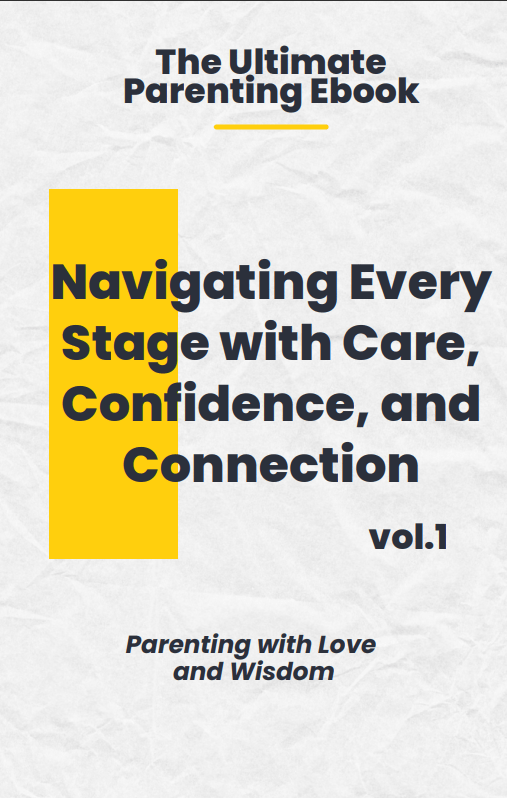
The emotional lives of teenagers can feel like the one moment, they’re laughing with you over dinner, and the next, they’re locked in their room with headphones on. As a parent, it’s easy to chalk up these shifts to “typical teen behavior,” but what if they’re not?
Sometimes, the most pressing emotional struggles are the ones teens won’t openly share. They may be navigating complex feelings they don’t fully understand themselves. That’s why knowing how to spot the subtle signs can make all the difference in helping your teen feel seen and supported.
Let’s uncover those hidden signals together.
In This Blog
ToggleWhy Teens Hide Their Emotions
Teenagers are in a unique stage of life. Their brains are still developing, hormones are in overdrive, and their desire for independence often clashes with their need for guidance. Combine this with societal pressures, school stress, and the omnipresent influence of social media, and you’ve got a recipe for emotional overwhelm.
But why do they hide their feelings from you?
- Fear of judgment: Teens worry you’ll misunderstand or overreact.
- Desire for independence: Sharing emotions can feel like giving up control.
- They don’t fully understand their emotions: Many teens struggle to articulate what they’re feeling.
Understanding these reasons can help you approach them with patience and empathy.
5 Hidden Signs Your Teenager Needs Emotional Support
1. Sudden Changes in Routine
Have you noticed your teen sleeping much more—or barely at all? Are they skipping meals, binge-eating, or losing interest in activities they once loved?
Such shifts in daily habits often point to deeper emotional struggles. Stress, anxiety, or even depression can disrupt routines in ways teens might not realize or admit.
What to do: Gently ask questions like, “I’ve noticed you’ve been really tired lately. Is everything okay?” Sometimes, simply acknowledging the change opens the door to conversation.
2. Unexplained Irritability or Anger
Teenagers are famous for their mood swings, but when irritability becomes constant or extreme, it could signal underlying emotional distress. Anger often masks feelings of sadness, fear, or frustration.
What to do: Instead of reacting to their anger, respond with calm curiosity. Say something like, “You seem really upset. Do you want to talk about it?”
3. Withdrawal from Family Activities
If your teen, who once loved family game nights or movie marathons, suddenly starts isolating themselves, it might be more than just a quest for independence. Emotional struggles can make socializing—even with loved ones—feel exhausting.
What to do: Respect their need for space but let them know you’re there. Try saying, ““I really miss seeing you at family dinners lately. Let’s plan something fun together soon.”
4. Obsessive Focus on Appearance or Social Media
Does your teen spend hours scrolling through social media or become overly critical of their appearance? Social media can amplify feelings of inadequacy and self-doubt, especially for teens navigating the complexities of identity.
What to do: Encourage open conversations about the unrealistic standards often promoted online. Share your own struggles with self-image to create a safe space for dialogue.
5. Physical Complaints with No Medical Cause
Frequent headaches, stomachaches, or fatigue that don’t seem to have a medical explanation could be physical manifestations of emotional stress. Teens might not realize their emotional struggles are showing up in their bodies.
What to do: Take these complaints seriously. Acknowledge their discomfort and suggest seeing a doctor to rule out physical issues. If no medical cause is found, explore whether stress or anxiety could be playing a role.
How to Approach These Signs as a Parent
Approaching your teen about their emotions can feel like walking on eggshells, but here’s the secret: the emotional lives of teenagers thrive in environments of trust and empathy.
- Start small: Instead of diving into deep questions, begin with casual, non-confrontational conversations.
- Be an active listener: Sometimes, all they need is for you to hear them without interrupting or offering immediate solutions.
- Create a judgment-free zone: Make it clear that they can share their feelings without fear of criticism.
When to Seek Professional Help
It’s important to recognize when your teen’s emotional struggles go beyond what you can manage as a parent. If you notice prolonged symptoms of anxiety, depression, or self-harm, it’s time to seek professional support.
Anxiety: Persistent worry, restlessness, or physical symptoms like rapid heartbeat without a clear cause.
Depression: Ongoing sadness, lack of interest in activities, fatigue, or difficulty concentrating.
Self-Harm: Unexplained cuts, burns, or injuries, often hidden or dismissed as accidents.
Withdrawal: Avoidance of family, friends, or social activities they once enjoyed.
Drastic Behavior Changes: Sudden mood swings, reckless actions, or changes in sleeping or eating habits.
Reaching out for help isn’t a sign of failure—it’s an act of love. Therapists and counselors are trained to navigate the unique challenges of the emotional lives of teenagers and can provide the tools your teen needs to thrive.

Conclusion
Your teen’s emotional world might feel like a mystery, but you’re not powerless. By paying attention to these hidden signs and approaching with empathy, you can make a world of difference in their well-being.
Remember, you’re not alone in this journey. Many parents are navigating the same challenges, and the more we talk about the emotional lives of teenagers, the better we can support them.
If this article resonated with you, share it with another parent who might need these insights.
You may also be interested in : The Surprising Reasons Why Teenagers Rebel Against Moms (And How to Fix It)




